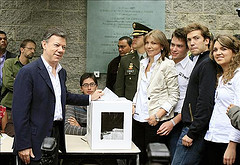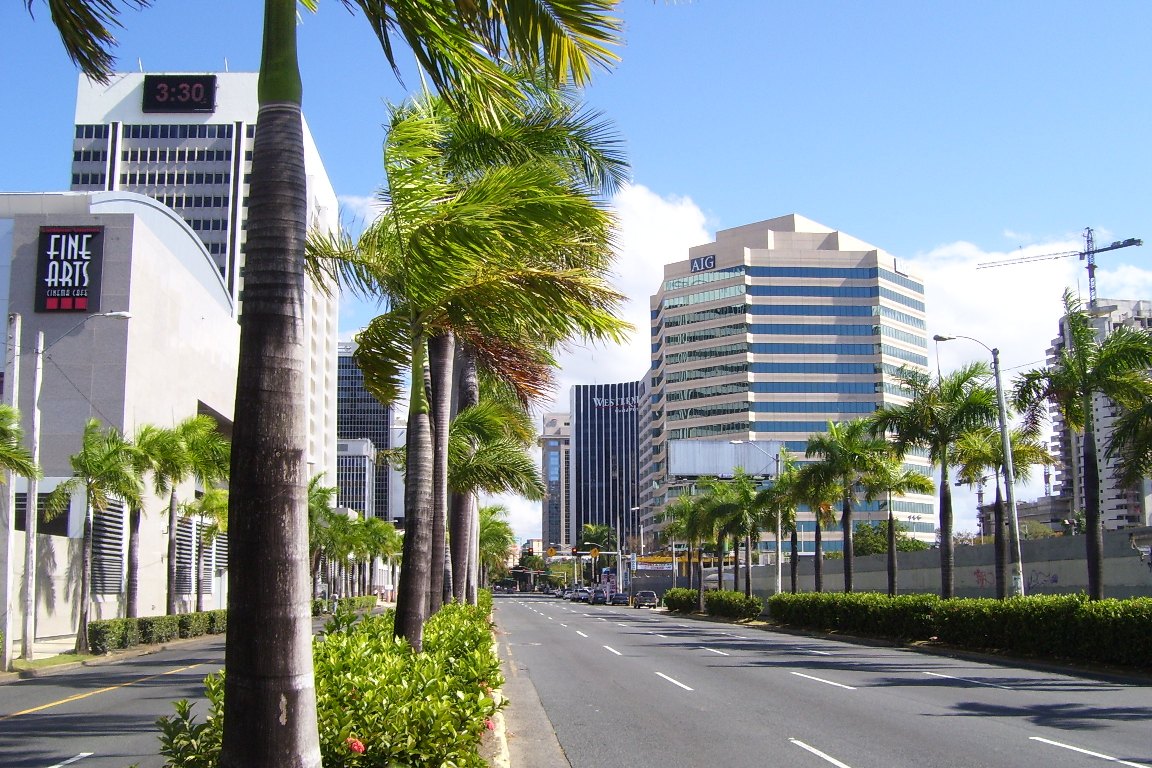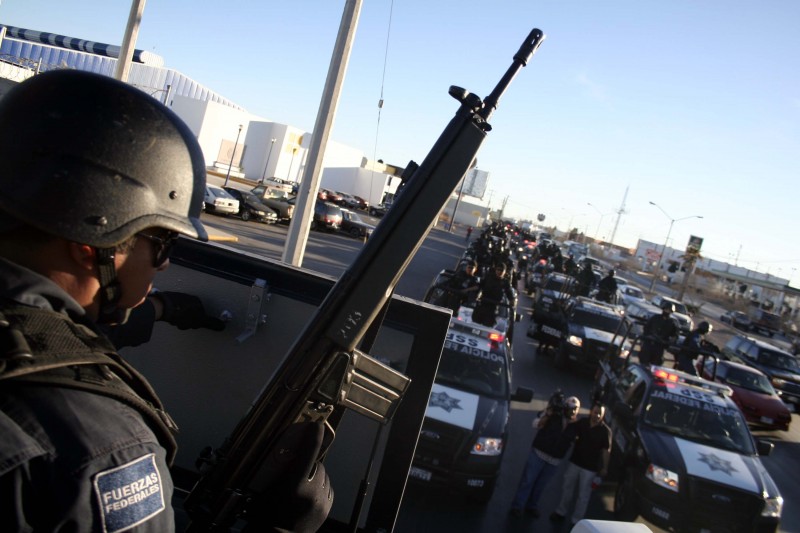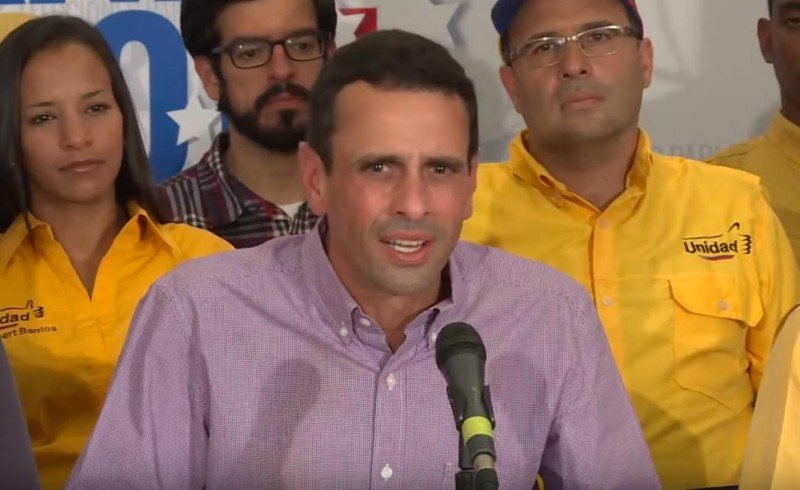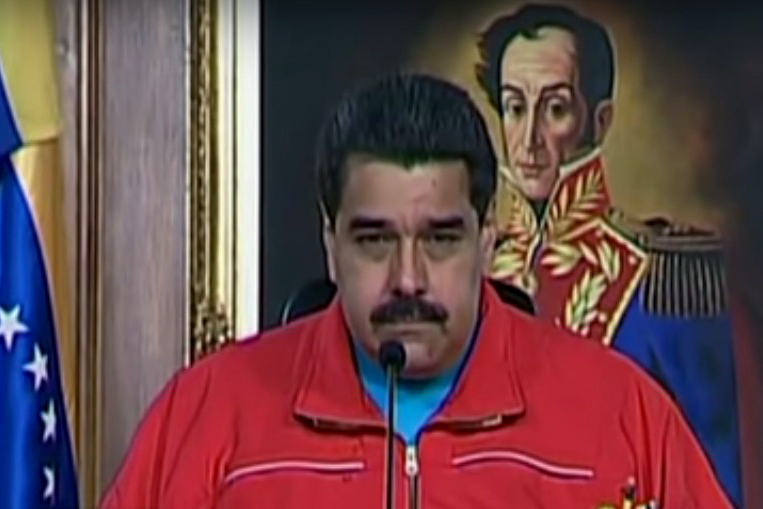
Andes, Latin America: Week in Review, Venezuela
Venezuela Opposition Defeats Ruling Party in Legislative Election
December 7, 2015 By Staff
Top Story — Venezuela’s opposition coalition on Sunday won control of the National Assembly for the first time in nearly 17 years, dealing a major blow to President Nicolás Maduro and the socialist revolution established by his predecessor, the late Hugo Chávez. It is still undetermined, however, whether the center-right coalition was able to gain the supermajority needed to make sweeping change.
The opposition’s victory comes amid voter frustration over an economic recession, triple-digit inflation and chronic shortages of basic products and food in supermarkets across the country. The Maduro administration has struggled to contain the economic fallout from the plummeting price of oil, which makes up 95 percent of the country’s export earnings.
The opposition coalition, comprised of 14 parties and known as the Democratic Unity Roundtable, or MUD, won at least 99 of the 167 National Assembly seats being disputed, the head of the electoral commission announced shortly after midnight on Monday. Maduro’s ruling United Socialist Party won at least 46 seats. The results for the remaining 22 seats were too close to call and remain undefined, according to the head of the electoral commission.
Maduro conceded defeat in a televised announcement shortly after the results were made public, saying that “our constitution and democracy have triumphed. We accept it.” Maduro attributed his party’s defeat to attempts by conservative forces to sabotage Venezuela’s economy.
“I can say today that the economic war has triumphed,” Maduro said in his address. The president had promised, in the run-up to Sunday’s legislative elections, to take to the streets if his party candidates did not win. By Sunday, however, he had shifted his stance, saying, “In Venezuela, peace and democracy must reign. I’ve said we’ll take the fight to the streets, but maybe I was wrong.”
By winning at least 99 seats as of early Monday morning, the opposition has surpassed the 84 seats needed for a simple majority. Such a victory will allow the opposition-led National Assembly to approve budgets, launch investigations into government agencies and pass amnesty laws in an effort to release incarcerated opposition figures, according to Reuters. With the results of 22 districts still undefined, the opposition has the chance to win a three-fifths majority, with 101 seats, or a two-thirds supermajority, with 112, which will allow it to challenge Maduro’s presidency before his term ends in 2019.
The congressional defeat of Maduro’s socialist administration is the latest setback for left-leaning governments in South America in less than one month. In Argentina, the election of center-right candidate Mauricio Macri over President Cristina Fernández’s chosen successor, Daniel Scioli, toppled 12 years of Peronist rule on Nov. 22. Brazilian President Dilma Rousseff, meanwhile, currently faces the biggest threat to her presidency after impeachment proceedings were initiated on Wednesday.
Headlines from the Western Hemisphere
North America
- A wave of murders has hit Mexico’s Guerrero state as gangs linked to the disappearance last year of 43 students battle over the $3 million in rent the Canadian mining company Goldcorp pays the village of Carrizalillo each year.
- Mexican writer Diego Enrique Osorno has published what The Guardian calls the most comprehensive biography yet of Mexican business magnate Carlos Slim, one of the world’s richest people who also happens to be notoriously publicity-shy.
- Police in Mexico arrested three men for their role in the murder of two Australian surfers last week after they confessed to killing the tourists, while two other suspects remain at large.
- Coca-Cola has issued an apology to Mexico’s indigenous communities after the company was forced to pull a controversial online video advertisement in which light-skinned volunteers brought bottles of Coke to the indigenous community of Totontepec.
Caribbean
- Representatives from the United States and Cuba are set to meet in Havana on Tuesday to negotiate for the first time ever what should be done about the $1.9 billion in outstanding property claims for the thousands of U.S. citizens and companies whose assets were confiscated following the Cuban Revolution.
- Retail giant Walmart sued Puerto Rico’s government on Friday with the goal of overturning a tax increase of over 4 percent enacted in May, which the retailer says in unfairly high. The island is likely to face more lawsuits from creditors angered by the government’s decision to divert funds in order to cover future debt payments. Meanwhile, an op-ed from the New York Times argues that President Barack Obama should use the resources of the U.S. Treasury Department to resolve the island’s debt crisis immediately.
Central America
- Nicaragua controversially declared that it will not be making a pledge to combat global warming during the international COP20 climate change conference in Paris this week, the first country to do so.
- An archbishop in El Salvador denied on Sunday that he had attempted to bribe a woman who had been sexually abused by a priest in an effort to keep her quiet, an announcement that comes as the country’s church faces an increase in sexual-abuse cases.
- Costa Rica and Belize are set to discuss on Tuesday a plan for Belize to accept nearly 3,000 Cuban migrants currently stranded at the border of Costa Rica and Nicaragua, so the Cubans could continue north into Mexico and then the United States from there.
Andes
- Three European priests who were shot and killed by Shining Path Maoist guerrillas in 1991 were beatified in Peru on Saturday during a ceremony attended by 30,000 people, becoming the first Catholic martyrs to receive such honors in the country.
- Colombian President Juan Manuel Santos announced in a tweet the discovery of a more than 300-year-old Spanish shipwreck off the coast of Cartagena on Friday afternoon, adding that he will have a museum built to house the ship’s $1 billion worth of cargo.
- Peruvian Football Federation President Manuel Burga and his Ecuadorian counterpart Luis Chiriboga were arrested in their respective countries after the U.S. Department of Justice charged them with corruption on Friday along with several other top FIFA officials.
Southern Cone
- Argentine President-elect Mauricio Macri’s staff announced on Sunday that it will aim to end capital controls through the central bank as soon as Dec. 14 in an effort to stimulate growth and curb rampant inflation.
- Following widespread student protests, the governor of Brazil’s São Paulo state temporarily shelved a proposal on Friday to shut down 93 schools as part of an education reform plan.
- Brazil’s ruling Workers’ Party suspended its ex-Senate leader, Delcídio Amaral, in response to his arrest last week on charges of obstructing the investigation into state-owned oil company Petrobras, which has been embroiled in a corruption scandal that has implicated numerous top government officials.
